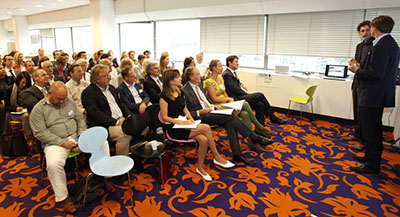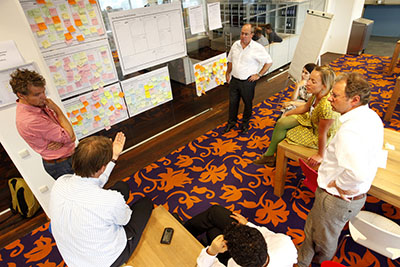On 18 August CILC as partner of Innovating Justice participated in a Co-Creation Event on Business Models for Justice. These cases covered a broad spectrum of areas for innovation: legal information and education, dispute resolution, courts and legislation. The event was organized in The Hague by Innovating Justice

Over 50 participants with diverse backgrounds worked with the method ‘Business Model Generation’ to empower the following 5 innovations:
CASE 1: Administrative Law Toolkit (CILC)
CASE 2: CSR-related Conflict Management Facility
CASE 3: European Academy for Law and Legislation
CASE 4: Covering Costs of Court Fees
CASE 5: Business Model for neutral legal aid aiming at low-income people
CASE 1: Administrative Law Toolkit
Administrative Law is a significant way to strengthen the Rule of Law. It regulates rights and duties between civilians and governmental authorities. It provides protection for citizens against governmental acts. Many transitional and developing countries have specifically requested administrative law reforms.
Local and international actors involved in these kinds of administrative law reforms advocated the need for best practices and lessons learnt based on broad experiences of the past in order to avoid reinventing the wheel and to ensure the greater impact of Administrative Law projects. These projects are facing the challenge of realizing substantive changes from which the beneficiaries will profit.
The Administrative Law Toolkit, developed by the Center for International Legal Cooperation (CILC), as a partner of Innovating Justice, is a response to this challenge.
Important questions that had to be answered for each case were the following:
Who are our most important customers?
What are their needs?
What bundles of products are we offering for each customer segment?
Which one of our customer’s problems are we helping to solve?
The participants collaborated on the five different cases in small groups; starting from scratch, the groups worked towards prototypes with, as final result, a possible Business Model for each case. Those who worked on the Administrative Law Toolkit were awarded a prize for the best presented Business Model.

It was an inspiring day with lots of challenges and interesting outcomes!

